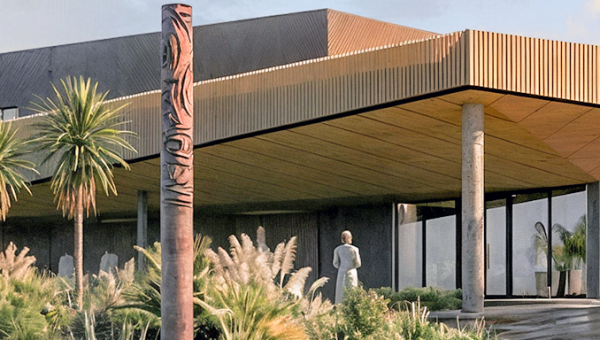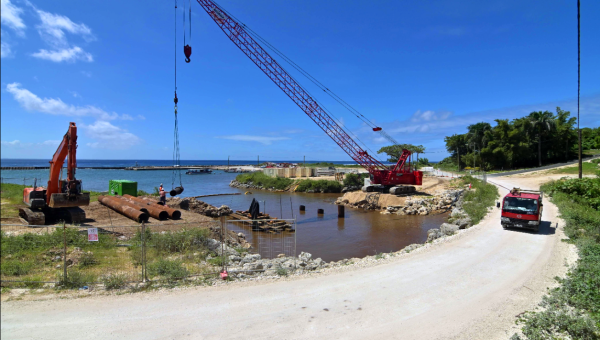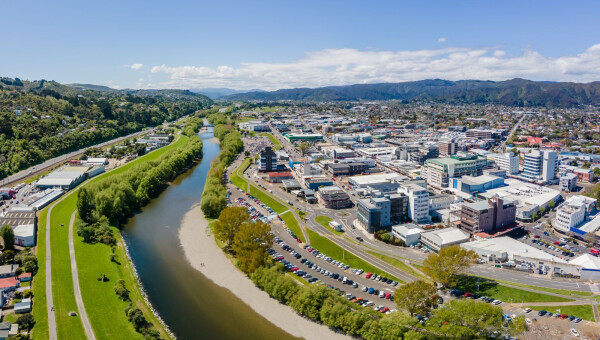Our team on the Eastland Port in Gisborne, New Zealand worked collaboratively with our customer to redesign a new marine berth and deliver outstanding sustainability benefits.
During the six-month value engineering process, McConnell Dowell’s in-house engineering team worked with Eastland Port to redesign the structure from a retaining wall design to a deck-on-pile solution.
The new design removed the need for 85,000 tonnes of hard fill, meaning 2,833 fewer truck movements through the city, saving 933,470 litres of diesel. It reduced the steel used by 70% and minimised disruption to port activities.
A drill and drive method was also used to install the piles mitigating noise and vibration for local sea life. Project staging was optimised to reduce the overall programme by 12 months and 3695 tonnes of second-hand steel was used and reused in the temporary works.
During construction, the team continued to reduce, reuse and recycle wherever possible finding alternate uses for old concrete and reusing 3695 tonnes of steel in temporary works - reducing the project's carbon footprint carbon miles and reducing the footprint even further saving 13,692 tonnes CO2e (carbon dioxide and equivalent greenhouse gases)*.
The project was completed on time, and on budget in August 2023, with a significantly smaller carbon footprint than originally estimated. A karakia and a community 'Wheels Day' were held so the locals could come and 'test' skate, scoot and cycle the new 255m long wharf. Over 1,400 people went to the open day to celebrate completion with the project team.
* *Figures were calculated using the emissions factors from the Ministry for the Environment (NZ) ‘Measuring Emissions: 2022 detailed guide’




